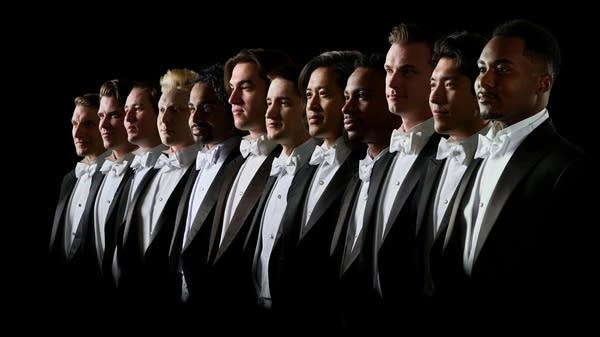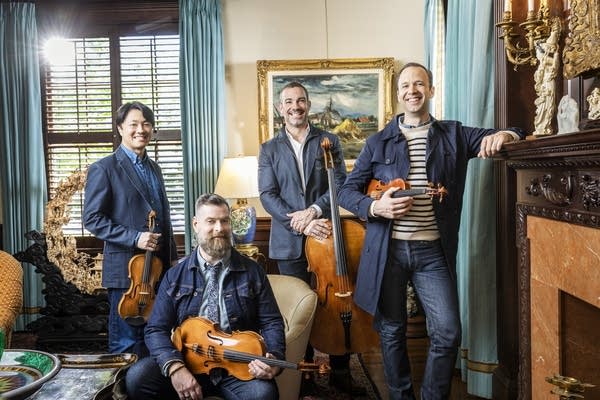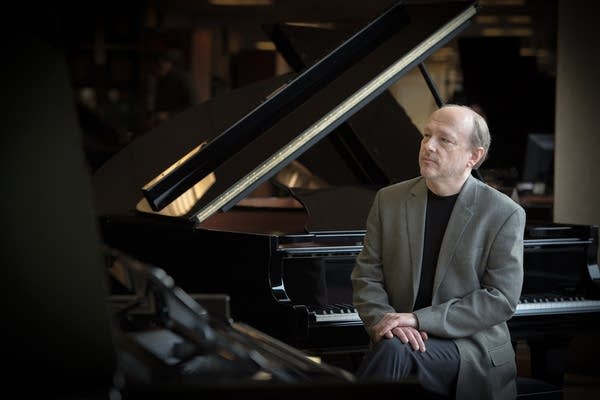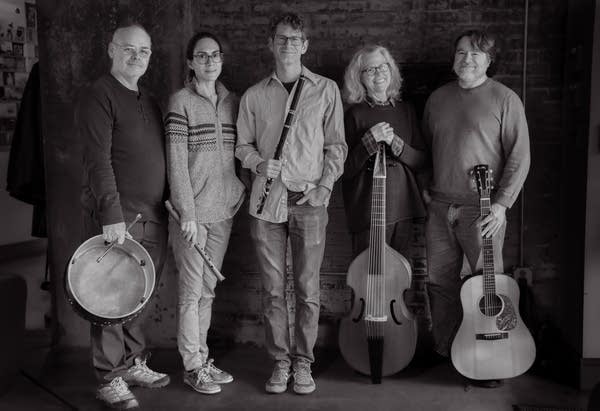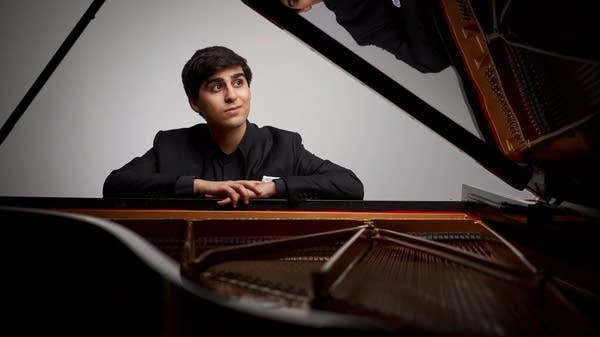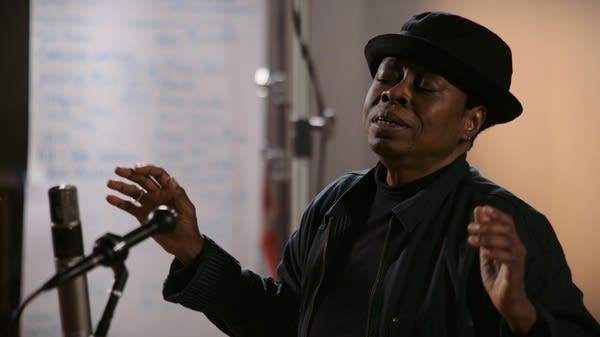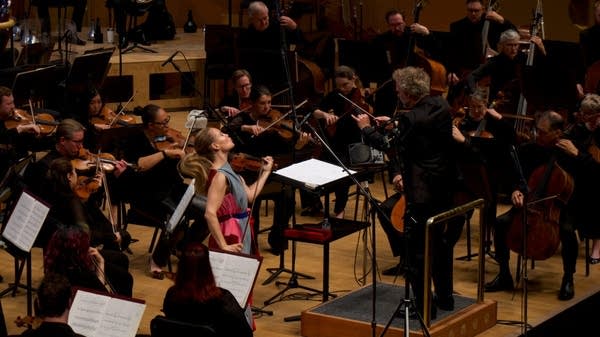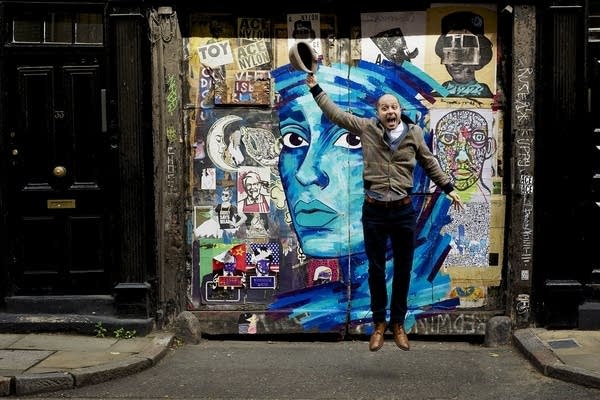
Rebel — Telemann: Double Concerti for Winds and Strings (Bridge 9421)
"The first piece we ever played together as a group was by the composer we're named after — Jean-Féry Rebel, whose dates are 1666 to 1747, a very innovative composer," says violinist Karen Marie Marmer. "And we loved the piece, and we were going back and forth with all kinds of ideas for names, and finally we just said, 'Why don't we call ourselves Ensemble Rebel?' And later in our career we streamlined the name to Rebel. So we're actually named after a Baroque composer."
Marmer co-founded the ensemble Rebel (say it, "re-BELL") with violinist Jörg-Michael Schwarz in the early 1990s. Rebel, the musician, was one of the first French composers who wrote violin sonatas with a strong Italian influence. "Now, one has to understand that the styles of French and Italians couldn't be more different," Jörg explains. "And not only are the styles different, but the French really don't dig the Italians or vice versa. They really don't like each other, in general. Certainly back then, it was quite pronounced, and you could not play French music in Italy or Italian music in France, with the exception of Corelli from Rome, and the French went crazy over Corelli's music. And Rebel, being an innovative guy, said, 'Well, I'm going to let myself be influenced by that.'"
On its latest recording, Rebel showcases the innovation of German Baroque composer Georg Philip Telemann. Jörg says German composers at the time were very smart, because they figured out how to stay out of the French-Italian conflict. "That's always the big question. What is the German style? It's what you get when you mix the best of the French and the best of the Italian, stir it five times clockwise and then counterclockwise and then you have German music," he says. "So that's what Handel and Telemann and Bach and all of these guys did. They picked the raisins. They took the best elements — the fugal writing, the virtuosic writing, and the sensuality and the sensitivity of the French style for the mostly slower movements. Then of course, they put their own five cents into the mix as being fabulous composers.
"The interesting thing with Telemann is that he, as a young man in his early 20s, worked in what was Prussia at the time but is now Poland. And he was there at a court and had to write music. Of course he went to the pubs and heard the folk musicians play, and he was very fascinated by this folk music. And in his own reminiscences of his life, he says — if you have ever heard what these guys can do on their instruments — if you are smart and really listen, you will have enough themes and ideas for the rest of your life, if you can only integrate it into your compositions. And that's exactly what Telemann did, unlike Handel and Bach. And that's what makes his music so unique and for us, even more special.
"There are some movements in particular where he uses some of these folk themes and then develops them with virtuosic sections in between. The best example: the final track on our CD, which is the concerto in E minor for recorder. That final Presto is as Polish as it will ever get. And we of course give it the right oomph and sort of lack of sensitivity, very rustic."
My favorite of the six double concerti on this disc is the one that leads off the recording. Jörg -Michael Schwarz told me it's a personal favorite of his, and of the ensemble. "The first concerto is for traverso [flute], violin and strings," he says. "The second movement is an absolutely gorgeous two-minute adagio where the two solo instruments, traverso and solo violin, basically just have a conversation with each other, first one and the other. Then we play together in a sideways key, a minor key: one of the instruments says something, the other reacts to it and in the end we end up together with some beautiful lines — of course, highly ornamented by us."
"It's an absolutely beautiful, beautiful movement," agrees Karen Marmer. "We've been asked by people, 'What's your favorite track on the CD?' And every one of the ensemble members says, 'Track number two.'"
"And independently — we didn't talk about it before," Jörg adds. "And when you hear it, it's not a showy movement at all. Track number three — that comes right on the heels of that beautiful conversation — is the most virtuosic moto perpetuo where the traverso doesn't touch or play at all. The orchestra just plays highly energetic chords every other beat or so, and the solo violin just takes off — unbelievable speed. But the accompanying orchestra plays in pizzicato — it's almost like a clock ticking."
The more you listen to this new recording of double concerti by Telemann with the ensemble Rebel, the more you'll discover just how innovative Telemann was at combining textures, contrasting solo instruments — and at keeping the peace between the Italians and the French.
Love the music?
Show your support by making a gift to YourClassical.
Each day, we’re here for you with thoughtful streams that set the tone for your day – not to mention the stories and programs that inspire you to new discovery and help you explore the music you love.
YourClassical is available for free, because we are listener-supported public media. Take a moment to make your gift today.
Your Donation
About New Classical Tracks®
Host Julie Amacher provides an in-depth exploration of a new classical music release each week.
Subscribe on Apple Podcasts, TuneIn, Radio Public, or RSS.





